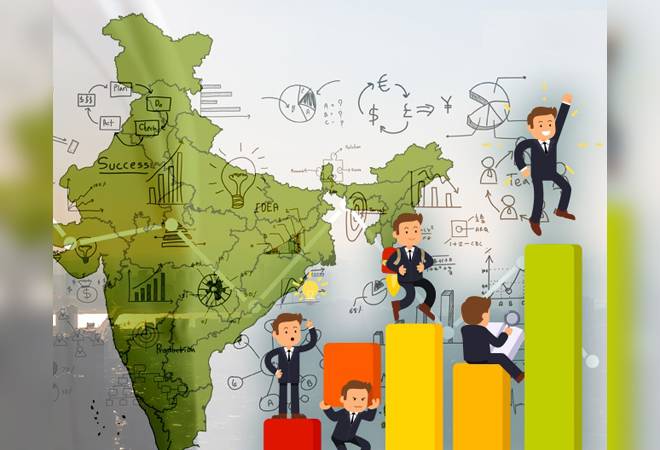
This article has been written by Sagar Sangam Mohanty, pursuing a Diploma in US Corporate Law and Paralegal Studies from LawSikho.
Table of Contents
Introduction
When we refer to the term prosecution, we refer to the continuation of a course of action that results in something. When we talk about patent prosecution, we are referring to what happens to a patent application that is filed before the patent office and its continuation within the patent office up until it results in a grant. So, the prosecution is generally seen as the series of events between two scheduled timelines. The first is the application time and the second is the grant time. A thorough patent application with strong patent claims is the first step in the procedure of application of patents in India. The Patents Act, 1970 is the core law that deals with patent applications under India’s filing and regulatory framework. Depending on the location of the applicant, patent applications may be submitted with the local branch of the Indian Patent Office or the headquarters. For an applicant to be granted a patent, expenses incurred are fees charged by the government for forms and renewals and the lawyer’s or agent’s fees.
Preliminary steps before filing patent prosecution
- Disclosure of the invention
An agreement of non-disclosure is concluded between the professional and the inventor. The details of the innovation must be handed completely to the professional after this agreement has been signed, for him to act on it in furtherance.
- Search for the patentability of an invention
This step involves the professional search for any similar work of the art or invention already present and whether the present innovation is patentable or not.
- The decision to submit a patent application
In this step, the decision will be reached following an investigation of whether or not the invention is patentable concerning the provisions of the patent law.
- Patent proposal
The preparation of the patent application is one of the most important steps of the patent application. The applicant may choose to draw out a request by himself or obtain assistance from expert patent agents or lawyers. After determining the above, the applicant files for a patent which is followed by a hoard of processes as discussed below.
-
Publication:
Patent applications are usually published in India after 18 months after the filing or priority date, whichever is earlier or if a request is made in this respect provided that the Controller of Patents or the Union government does not demand confidentiality in that regard. The applicant has the same right as a patent proprietor on the date of publication, but the right is only exercisable once a patent has been granted. From the date of publication of application, the right might be exercised retrospectively subject to the Limitation Act, 1963.
-
Pre-grant opposition:
Every person, by means of representation, can file an opposition in the patent application from the date that the patent application is published in the Indian Patent Journal until the patent is granted, provided that a request for examination is made. The patent shall thus not be granted until the objection has been set aside.
-
Examination of patent application:
A request for examination must be submitted within 48 months after the date of submission of application or of priority, whichever is earlier of the two, for substantive examination of the patent application in India. In the event of secrecy instructions by the government, the request must be submitted immediately as aforesaid, or within 6 months from the day when the secrecy direction is revoked, whichever is later. The request must be submitted within 6 months after submission of the divisional application or within the time limits indicated above, whichever is later.
An email address is filled in the address of service in the application form. Now, the examination report is issued by email itself. All specifications are or full description is not supplied along with the application, but just those pages of the specification would be given by e-mail, in extreme circumstances, where certain changes or corrections are required. The exam report etc. shall be sent by post if no email id is supplied.
-
Patent grant:
The Patent Office shall issue a notice of acceptance once it has met all the objections raised by the examiner and fulfilled all the requirements under the Indian Patents Act and Patents rules. Within 7 days of the acceptance of an application to the applicant, Letters Patent documents are issued to the applicant. The issued grant certificate is sent via mail.
-
Post-grant opposition:
Any interested party may object to a patent grant in India within 12 months of the date the patent award is published in a notice of opposition in the Patent Office Journal.
-
Duration of Patent and renewal:
In India, the patent duration is for 20 years from the date of filing of an application for both ordinary and standard patents. For PCT national phase patent applications, it is 20 years from the date on which the international PCT application is submitted. Post the grant of a patent, a renewal fee has to be paid, starting from the third year up to the 20th year, and this amount is payable before the expiry of each respective year. The pending annuity period starts from the day of grant each year and must be paid within the 3 months after the grant date. The patent gets automatically revoked when the renewal fee has not been paid at the appropriate time. The patent gets restored when the payment is made.No action can be taken by the patent holder against any person for infringement of the patent during the period between the revocation of the patent and its restoration.
- Fees involved in patent prosecution:
For the filing of a patent application and associated proceedings before the Patent Office, a redesigned fee structure has been provided for under the recently modified Patent Rules. The third class of patent applicants was introduced as a ‘small entity with the fees charged between the fees fixed for natural persons and on all entities other than natural persons (except a small entity). The updated rules also levy an additional cost of 10% when the patent applications and other documents are physically filed, i.e., on paper in contrast to online mode.
-
Time is taken for grant of patent:
It takes approximately 5 to 7 years to grant the patent in India. The examination of the patent application in India can be speeded up where either the applicant is a ‘start-up’ or India is indicated as International Searching Authority (ISA) or elected as International Preliminary Examining Authority (IPEA) in the respective international patent application. This has now been extended to include applications from the following:
- a natural person or, in joint applications having all applicant(s) as natural, or a at least one female applicant among them,
- government agency,
- a central or state institution owned or controlled by the government,
- a government company as per Section 2(45) of the Companies Act, 2013,
- a fully or substantially funded government institution,
- an applicant whose application concerns the industry notified to the central government on request from a central government department head, and
- the applicant whose application may be eligible for processing a patent application pursuant to an agreement between the Indian Patent Office and a foreign patent office. For this, the cabinet approved the Patent Prosecution Highway (PPH program) and the patent industry commenced to accept applications under the PPH pilot program in regard to the Japan Patent Office.
-
Expedited patent prosecution
A huge number of examiners have been recruited by the Indian Patent Office to modernize and expand. The time limit for granting a patent is therefore projected to be reduced from around 5 to 7 years on average to 2 to 5 years. A request to the controller with the necessary fees can advance the publication of the application. The Rules on Patents 2003 were revised in 2016 and entered into force on 16 May 2016.
To speed up the pursuit of patent applications, several new Rules were which made an important procedural change to the pursuit of patents. Some significant ones are:
a. Application examination: the response to the examination report must be submitted within six months of the day on which the first statement of objections was issued (instead of 12 months). The term may be extended by three months if the request for a delay is made before the six-month period has expired.
b. Hearings: All submissions must be made within 15 days from the date of the hearing. In case of a request for adjournment, an application must be filed at least three days before the date of the hearing. No party shall be granted more than two adjournments and no adjournment can be of more than 30 days.
To further expedite the process of patent examination, the Patent Rules (Amendment) 2019, was published by the Ministry of Commerce and Industry, and the Department of Promotion of Industry and Internal Tradewhich came into force on 17 September 2019.
Conclusion
Every ordinary man is not aware of intellectual property laws even today. There needs to be a solid understanding of patent rights when the industrial and innovative property is safeguarded, to increase the country’s economy in turn. The Indian Government has elaborately laid down the whole process which it is trying to accelerate and make it easier by introducing special provisions. Complete knowledge of the process helps us identify, plan, implement and safeguard innovation quickly and easily.
References
- Patents (Amendment) Rules, 2019, Department of Promotion of Industry and Internal Trade, Ministry of Commerce and Industry, <https://dipp.gov.in/whats-new/patents-amendment-rules-2019>accessed June 4, 2021
- Aayush Sharma, “Expedite Examination Scheme by IPO- an Introduction” (Mondaq.com, September 5, 2016) <https://www.mondaq.com/india/patent/523936/expedite-examination-scheme-by-ipo-an-introduction> accessed June 4, 2021
- Rana L, “An Overview of Procedure Guidelines for Patent Prosecution Highway” (Mondaq.com, December 17, 2019)<https://www.mondaq.com/india/patent/875804/an-overview-of-procedure-guidelines-for-patent-prosecution-highway> accessed June 4, 2021
- Archana Shanker and Gitika Suri, “In Brief: Patent Prosecution in India” (Lexology.com, May 29, 2020) <https://www.lexology.com/library/detail.aspx?g=7a10a739-761b-4032-a697-034efb17d4f1> accessed June 4, 2021
- Cost of Filing Patent in India by Expedited Route Patent Attorney India” (Patent Attorney Worldwide India, October 9, 2020) <https://patentattorneyworldwide.com/in/cost-of-filing-patent-in-india-by-expedited-route/> accessed June 4, 2021
- “Patent Filing Process in India” (Patentbusinesslawyer.com, 2019) <https://patentbusinesslawyer.com/patent-filing-process-in-india/> accessed June 4, 2021.
Students of Lawsikho courses regularly produce writing assignments and work on practical exercises as a part of their coursework and develop themselves in real-life practical skills.
LawSikho has created a telegram group for exchanging legal knowledge, referrals, and various opportunities. You can click on this link and join:
 Serato DJ Crack 2025Serato DJ PRO Crack
Serato DJ Crack 2025Serato DJ PRO Crack









 Allow notifications
Allow notifications


